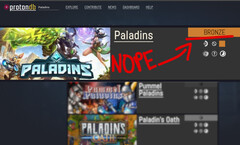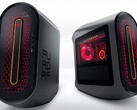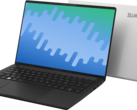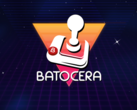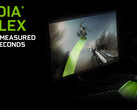The Steam Deck has been a massive step towards getting Linux gaming into the mainstream, with recent reports putting but even before that, ProtonDB was helping Linux gamers know what games they can and can't run on their open-source operating systems. While ProtonDB is a must-have resource for Linux gaming, its crowd-sourced compatibility reporting and rating structure are flawed. Some games that are listed as playable are, in fact, not at all.
ProtonDB allows players to report, in great detail, their experience running games on Linux, along with whatever troubleshooting steps they had to take to get the game working properly. Games are given a compatibility rating based on a medal system, which ProtonDB explains as follows:
- Platinum (runs perfectly out of the box)
- Gold (runs perfectly after tweaks)
- Silver (runs with minor issues, but generally is playable)
- Bronze (runs, but often crashes or has issues preventing from playing comfortably)
- Borked (game either won't start or is crucially unplayable)
The problem with this medal system, which was ironically introduced in 2018 to mitigate ambiguity and improve accuracy, is that it doesn't give users enough information at a glance. In many cases, a game might have a "Bronze" medal, indicating that it is playable — even if just barely — but not be playable at all in any meaningful way.
One such example is Paladins, which used to be playable on Linux, but lost compatibility sometime around a year ago, when its developer, Hi Rez Studios, changed something about its Easy Anti-Cheat configuration, rendering Paladins's multiplayer impossible. Paladins, for the uninitiated, is a MOBA (Multiplayer Online Battle Arena), meaning the game hinges entirely on multiplayer functionality. A similar story plays out looking at Sniper Elite V2. The game has a Bronze rating on ProtonDB, but there are user reports dating back over a year stating that the game doesn't even open, never mind allow users to play the game with some features missing.
The beauty of Steam's Proton compatibility layer is that it reduces a lot of the friction involved with gaming on Linux, often eliminating tinkering with WINE configurations and more technical aspects of Linux gaming. While ProtonDB's user reports can be useful for figuring out what to do to get the game running, how it ranks games and assigns medals should be addressed, because it is currently not a reliable representation of how the games run, and forces users into the user reports section to get an accurate idea of what to expect.
To be fair to the developer of ProtonDB, Buck DeFore, the project is admittedly a passion project. He has no obligation to make ProtonDB or fix any weirdness with the reporting scheme. Valve has implemented a feature for its Steam client that lists Steam Deck — and therefore Linux — compatibility directly on a game's store page, but the feature remains buried in the beta options nearly a year after landing.
Arguably, it should be someone like Valve, who is raking in money from Steam Deck sales, that should offer a better solution, instead of relying on a passionate community to fill in the gaps to make its products successful.
If you're looking to game on Linux, but want something more powerful than a Steam Deck, the Lenovo Legion Go is just $649.99 from Lenovo and runs distributions like Nobara Linux and ChimeraOS flawlessly.


 Deutsch
Deutsch English
English Español
Español Français
Français Italiano
Italiano Nederlands
Nederlands Polski
Polski Português
Português Русский
Русский Türkçe
Türkçe Svenska
Svenska Chinese
Chinese Magyar
Magyar